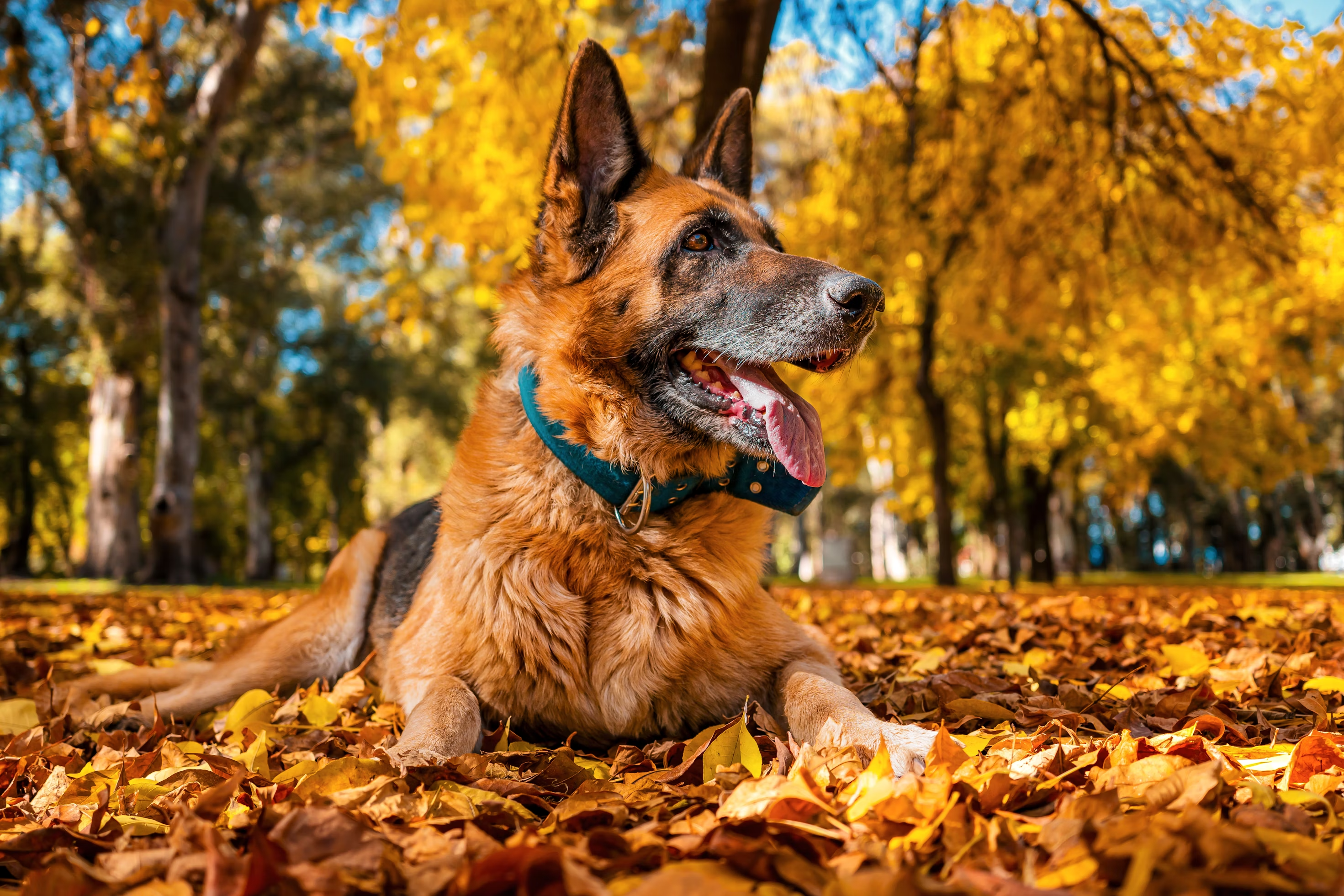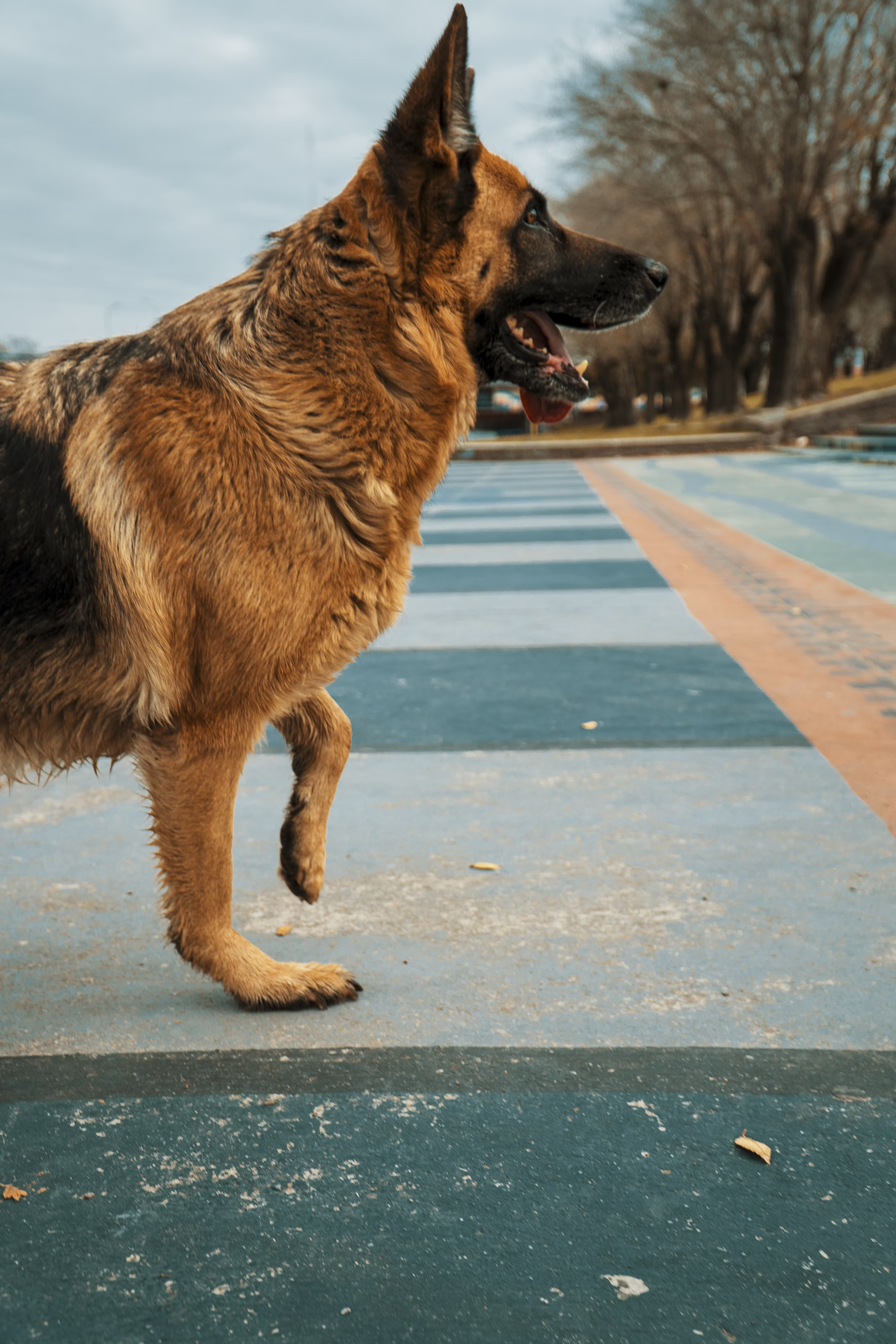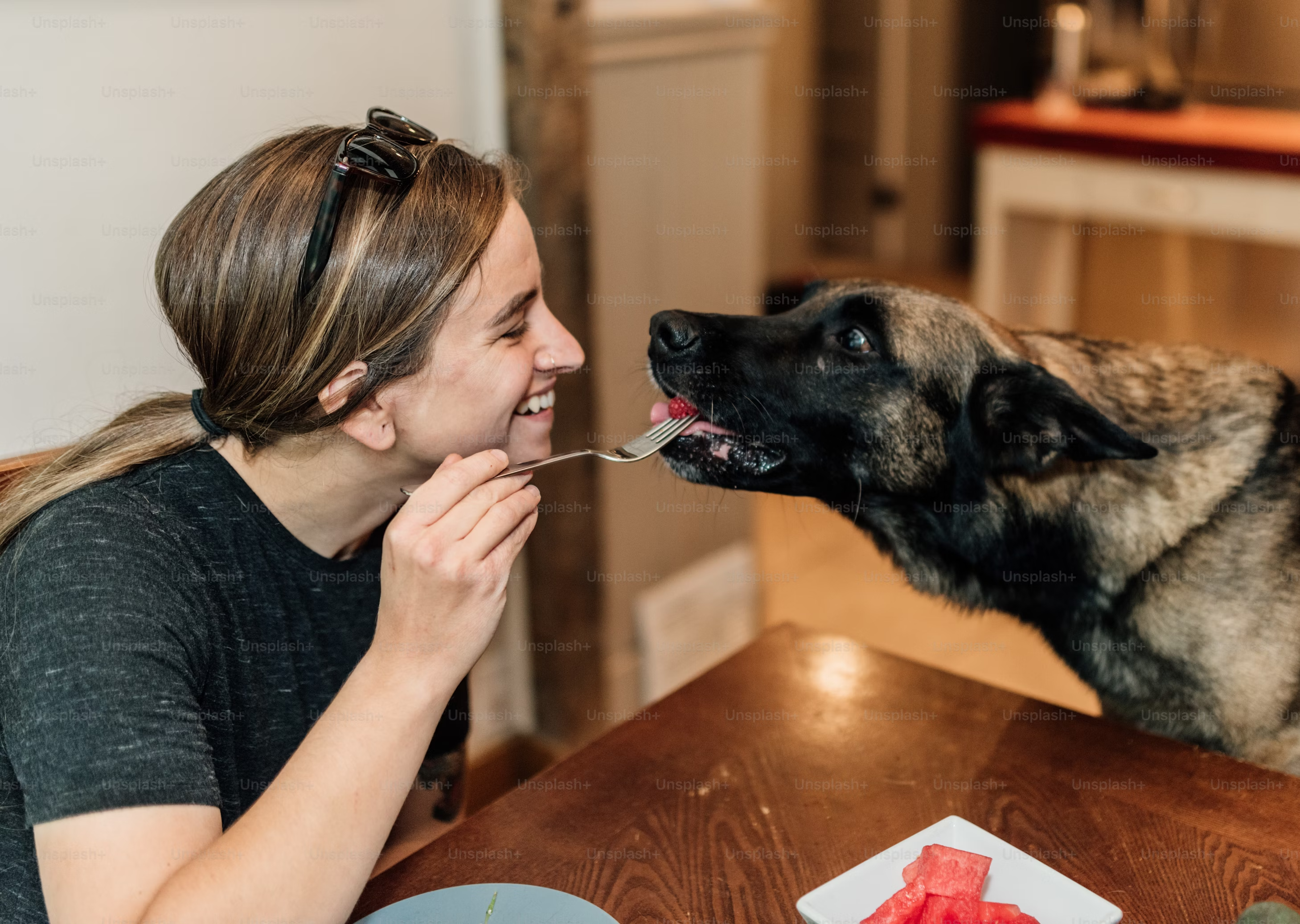How to Treat a German Shepherd with Hair Loss. Complete Guide
German Shepherds are known for their intelligence, loyalty, and striking appearance. However, like many other breeds, they are susceptible to various skin and coat problems. Nevertheless, like several other breeds, they are prone to skin and coat ailments.
Some of the most frequent issues include coat loss, with special reference to German Shepherds’ coats. Losing hair can be a huge issue for a German Shepherd, so if your dog is suffering from this problem, the condition must be treated as soon as possible.
In this article, we will outline the steps to follow when treating hair loss symptoms in dogs, with a special focus on German shepherds and ways that can be used to avoid hair loss later on. You’ll also get more information on diet, home remedies, and other tips to help care for German Shepherds or any other dog. It is highly recommended to keep your dog in the same way nature would have kept it, also use products that are made naturally as much as possible.
What Causes Hair Loss in German Shepherds?

Hair loss in German Shepherds can be triggered by a variety of factors, including:
• Allergies: Environmental and food allergies cause hair loss on dogs’ bodies and in the area around the tail region. This causes dogs to scratch and scratch their bodies, mostly their heads, neckbands, and other body parts covered with hair, thus contributing to hair shedding.
• Parasites: Fleas, ticks, and mites are well known to produce skin inflammation, which results in hair loss.
• Hormonal Imbalances: Illnesses such as hypothyroidism and Cushing’s disease affect hormonal balance, leaving your dog with thin hair or patches of alopecia.
• Stress: You are going to be shocked, but it is really a fact that stress can also cause problems. A stressed dog may scratch himself or wipe his body on the ground, which may result in patches.
• Nutritional Deficiencies: Poor diets have adverse impacts on the quality of your dog’s skin and fur coat, causing the animal to shed hair.
Regardless of the truth, it becomes important to consult the doctor to avoid worsening the situation and facilitate hair growth.
Check out What is Special About German Shepherds? to have a better understanding of your Dog.
How Can I Reduce Hair Loss in Dog?
It is annoying for pet owners when their pets have excessive shedding and hair loss.
Fortunately, there are several German Shepherd care tips you can follow to help manage the situation:

1. Regular Grooming
Taking care of the German Shepherd requires grooming the dog often. Brushing also often will prevent loose hair from shedding and spreading all over your house. It is recommended that German Shepherds be combed at least 2-3 times each week, and this is more recommended during shedding time.
• Use a Slicker Brush or Undercoat Rake: The breed has a double coat, and some of the most appropriate tools include slicker brushes or undercoat rakes to help remove loose fur from the undercoat.
• Bathing: To reduce irritation to your dog’s skin, bathe the dog using a hypoallergenic dog shampoo formulated to treat hair loss in dogs. But do not over-bathe him or her because this will remove the oils from the skin, and the skin will become dry.
2. Address Allergies
If your German Shepherd is allergic to something, it is relatively easy to find out what it is with the help of your veterinarian. Once diagnosed, there are ways and means to treat the allergy itself –changing their food or using an allergy medication. Controlling contact with allergens is mandatory to end the scratching that causes deterioration of the fur in dogs.
3. Parasite Prevention
Fleas, ticks, and mites are some of the skin parasites that can cause a lot of discomfort to your dog as well as produce symptoms such as inflammation and shedding of hair. Make sure that the German Shepherd that you have is on flea and tick prevention program.
This is an essential aspect concerning how to take care of a German Shepherd since it helps the dog avoid infestation from some parasites that are known to cause skin illnesses.
4. Stress Management
It is worthy of note that dogs are sensitive animals and they are capable of developing stress which is not good for their health. Being part of the basic German Shepherd care tips is establishing a consistent schedule, pal much exercise and mental stimulation.
If a dog has a comfortable and secured position they are not going to scratch uncontrollably because they are stressed.
5. Dietary Improvements
One way to help a dog’s hair regrow is to ensure it is fed a proper, balanced diet. This will be discussed in detail later, but to maintain a healthy coat, feed your German Shepherd the right nutrients.
6. Consult a Veterinarian
But if the hair loss increases or doesn’t subside, it would be wise to talk to a vet. They may organize some investigations to exclude other causes, such as hormonal disorders, infections, or autoimmune diseases, and therefore require treatment.
Is Coconut Oil Good for Dogs?
Coconut oil is considered one of the best natural remedies for both human beings and animals. When it comes to caring for a German Shepherd, coconut oil is very useful in enhancing the skin and coat health of your dog.
Benefits of Coconut Oil for Dogs:
• Moisturizes Skin: Coconut oil is known to reduce inflammation of the skin and also to overcome dryness, which has a factor to do with hair loss in dogs. Being natural it helps to rebuild the skin’s natural barrier function due to its moisturizing effect.
• Reduces Inflammation: This butter has anti-inflammatory compounds that may soothe inflamed skin and thus give one less desire to scratch.
• Fights Infections: Coconut oil is known to possess attributes such as antibacterial, antifungal and antiviral properties that would make it effective in treating skin infections that causes hair loss in dogs.
How to Use Coconut Oil for Dogs
• Topically: Rub a small amount of coconut oil onto your dog’s coat, especially on parts of the body where the fur is absent or where it easily irritates. Rub it softly over the skin and coat of your pet.
• In Their Diet: Coconut oil can also be given to your dog together with the food you give him. Begin with about a ¼ teaspoon in little dogs or one teaspoon in larger dogs, including the German shepherd. If your dog tends to become lethargic or shows other signs of overdosing with the supplement, you can gradually decrease the serving or stick to a fewer serving.
It’s important to always check with your vet before incorporating any supplement into your dogs’ diets, but coconut oil is a natural supplement you can consider when in search of German Shepherd tips.
Is Turmeric Good for Dogs?
Another natural supplement that has been considered recently is turmeric’s effects on dogs’ health. When learning how to care for a German Shepherd, it is important to add turmeric to their diet.
• Antioxidant Properties: Antioxidants present in the turmeric aid in the skin protection and repair from damage connected to aging.
• Promotes Healthy Skin and Coat: Using turmeric frequently will help enhance the health of the skin of your dog and this will lead to the reduction in hair falling off in dogs.
How To Use Turmeric For Dogs
Turmeric can also be added to your dog’s meal and it is advisable to mix it with his or her food. It has to be implemented gradually, and the management has to ensure that it is well tolerated by those it will affect.
To begin with, give the child a small portion, about ¼ teaspoon for the small dogs and for large dogs like German Shepherds, about ½ teaspoon, and gradually increase the portion. Some companies even add a pinch of black pepper to the recipes because it can increase the body’s assimilation of turmeric.
As it goes with any supplement, it is advisable that a vet approve its use in a dog’s diet before it is incorporated. It is proved to be a perfect natural remedy that you should insert into the list of tips on how to take care of a German Shepherd.
What to Feed a Dog with Hair Loss?

Diet relates to another important role of your dog’s well-being as well as to the treatment of excessive hair loss in dogs.
A diet that is well-rounded and full of essential nutrients so that their skin becomes stronger and this reduces instances of shedding of coat. Here are some dietary tips to consider for your German Shepherd:
1. High-Quality Protein
Protein is necessary for maintaining hair and skin. Select animal proteins to be used in preparing its foods should be of high quality, such as chicken, turkey, beef, or fish. Since they are muscular and active breeds, German Shepherds need a higher amount of protein in their diet than other dog breeds.
2. Omega-3 Fatty Acids
Omega-3 acids, which can be obtained through fish oils, aid in the decrease of inflammation and improvement of the skin covering. They can greatly enhance the state of the skin of your dog, or eliminate hair loss in dogs altogether. You may want to incorporate a fish oil supplement in your dog’s diet or feed him foods that are rich in omega-3 fish, like salmon or sardine.
3. Vitamins and Minerals
There are some of the vitamins and minerals that are vital to the health of the skin and the coat. The best vitamins for hair growth include Vitamin E, Biotin, and Zinc to mention but a few in the fight against hair loss.
If possible, it is recommended to feed your German Shepherd foods that are rich in such nutrients or supplements that contain them in plenty as part of your German Shepherd’s care.
4. Probiotics
There is nothing more crucial to skin health than gut health. Often, disorders of the stomach and intestines or general inflammation might contribute to complications such as bacterial dermatitis in dogs, which leads to hair loss. Hence, the importance of using probiotics.
5. Grain-Free Diets (If Necessary)
Some of the dogs are allergic to grains, and this causes them to have hair loss and skin conditions. If you feel that grains aggravate your dog’s situation, then speak to the veterinarian with the intent of changing its diet from a grain-containing diet to a grain-free diet.
In order to get a deeper dive into the diet of German Shephard or any other, check out What Does the German Shepherd Eat? Complete Guide .
Final Thoughts
Overcoming the issue of hair loss in dogs, especially German shepherds, needs to be done based on the approaches to be used. Thus, it is recommended to maintain your pet’s coat by keeping it clean from excessive shedding, getting rid of allergic infections or parasites, and feeding your pet properly.
Other natural treatments, included in the diet of your dog, may include use of coconut oil and turmeric powder. Following these German Shepherd care tips would go a long way in making sure that your pet is happy, healthy, and well-groomed.
Please bear this in mind, if the hair loss continues, it is advisable to consult your veterinarian to check for possible medical factors.
Good grooming habits in how to take care of a German Shepherd will also help in improving on the coat as well as the general health of these dogs. In addition, with little maintenance of feeding and grooming, your German Shepherd will have a sleek and good coat that reflects your dog’s good health.
FAQs
1. Can stress cause hair loss in my German Shepherd?
Indeed, stress can cause excessive grooming or scratching that can shave off the coat in dogs. Appropriate management of the physical environment in terms of stability, comfort and taking regular exercises may also minimize stress-induced hair loss.
2. How often should I bathe my German Shepherd to prevent hair loss?
Your German Shepherd’s bathing should be done after every 6–8 weeks, and you should use a gentle hypoallergenic dog shampoo. This is because over-bathing tends to remove the natural oils in their bodies as well as resulting in the shedding of hair in dogs.
3. Does my German Shepherd’s diet affect hair loss?
They also asked if a poor diet means the dogs will lose hair, and I replied that it is true. Make sure your dog is fed a well balanced diet and that of the protein, omega-3 fatty acids and vitamins for skin and coat.
4. Can coconut oil help with my dog’s hair loss?
Yes it does, coconut oil has been seen to help in solving the problem of hair loss in dogs. It hydrates the skin, which is very important in preventing breakages; it also smoothes down the inflammation and kills some bacteria that might lead to this infection.
5. Do I take my dog to the vet if they are losing hair?
Absolutely. If the hair loss in your dog is extensive, prolonged, or if it is coupled with other symptoms, go to your veterinarian to make sure there is no hidden health problem, such as allergies or hormonal disease.

